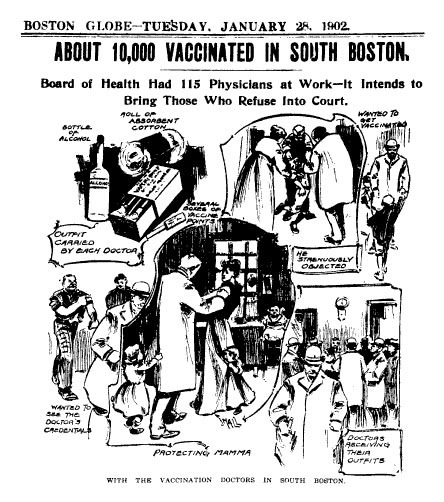In Jacobson v. Massachusetts (1905), the Supreme Court upheld a state’s mandatory compulsory smallpox vaccination law over the challenge of a pastor who alleged that it violated his religious liberty rights.
Pastor Henning Jacobson contended that he had a right under the Free Exercise Clause of the First Amendment to avoid the mandatory vaccination law.
Court: Requiring smallpox vaccine does not violate First Amendment
The U.S. Supreme Court, in an opinion by Justice John Marshall Harlan I, ruled that the state of Massachusetts acted constitutionally within its police powers to pass a law to protect the health and safety of the public.
“According to settled principles, the police power of a State must be held to embrace, at least, such reasonable regulations established directly by legislative enactment as will protect the public health and the public safety,” Harlan wrote.
Individual right must sometimes give way to ‘common good’, Harlan wrote
Jacobson argued that the smallpox vaccination law not only infringed on his religious liberty but also was arbitrary and capricious. The Court disagreed, writing that Jacobson’s individual right must give way to the “common good.”
Harlan explained: “But the liberty secured by the Constitution of the United States to every person within its jurisdiction does not import an absolute right in each person to be, at all times and in all circumstances, wholly freed from restraint. There are manifold restraints to which every person is necessarily subject for the common good.”
The Court emphasized that government officials were acting out of necessity as smallpox was “prevalent and increasing at Cambridge.” This emergency situation justified the government official’s action in making the smallpox vaccination mandatory.
The Jacobson decision has come back into prominence in First Amendment jurisprudence, as many courts have cited the decision when confronting First Amendment challenges to various executive orders and edicts passed in the wake of the pandemic caused by the Coronvirus known as COVID-19.
David L. Hudson, Jr. is a First Amendment Fellow at the Freedom Forum Institute and a law professor at Belmont University who publishes widely on First Amendment topics. This article was published June 3, 2020.

